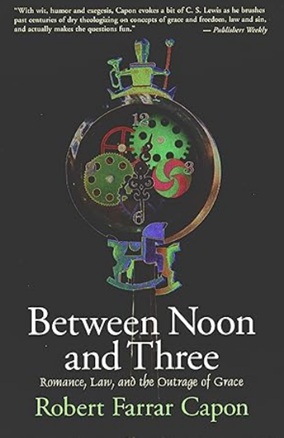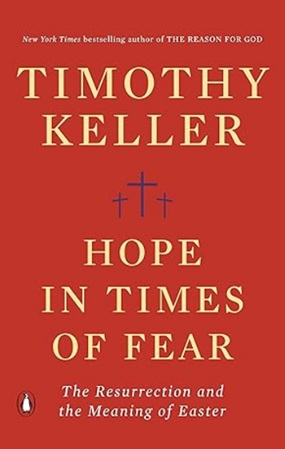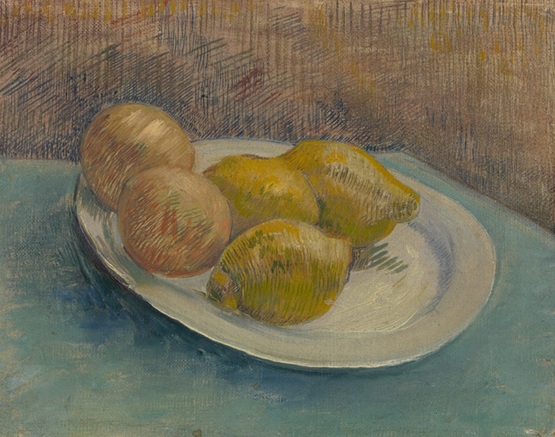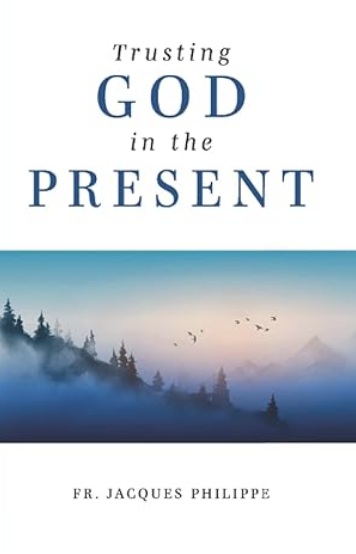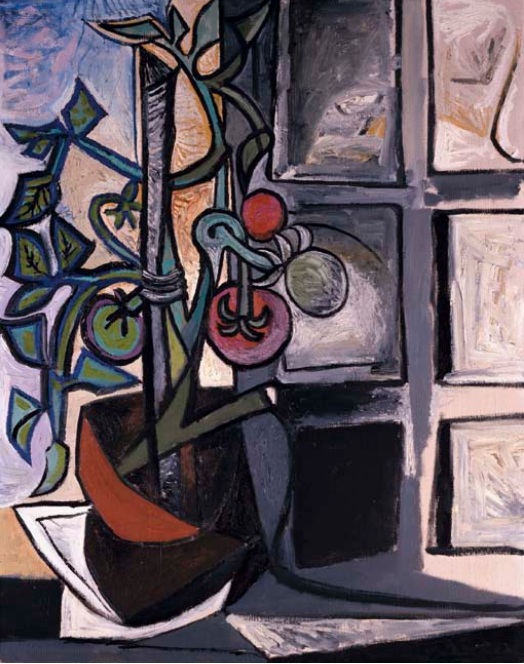Robert Capon, in his book Between Noon and Three, urges us to embrace one of the strangely hardest things for us to even accept — the fact we’re loved by God regardless of our sin, that we’re children of God regardless of our disobedience, that we’re forgiven both now and forever, through nothing we’ve done and in spite of everything we’ve done and will do.
In the context of the onset of the Reformation’s fundamental truth – justification by faith alone, Capon writes (italics added).
“The word of the Gospel — after all those centuries of trying to lift yourself into heaven by worrying about the perfection of your bootstraps — suddenly turned out to be a flat announcement that the saved were home before they started.
…. Grace has to be drunk straight: no water, no ice, and certainly no ginger ale; neither goodness, nor badness,, nor the flowers that bloom in the spring of super spirituality could be allowed to enter into the case.”
Two lines in there best sum up what Capon is saying.
First, “Grace has got to be drunk straight.”

We have so much trouble drinking grace straight, because it seems easy, almost childish, it defies the way grownup world works, and seems wild fantasy to our condemning hearts.
From the moment we’re born, we quickly learn that in order to please our parents, we have to be obey and “be good kids.”
In order to please our teachers, we have to get good grades and sit still and listen.
In order to please our peers, we have to perform a certain way – dress like this, talk like that, do all these things.
In order to please our bosses, we have to meet or exceed their expectations.
In order to please society, we have to be pleasing ourselves, in whatever the situation demands, and I’m not saying that’s a bad or good thing, it’s just a thing, and can be crushing. And if it’s not yet, it will be for everyone, at some point in their lives.
In short – becoming a “good person,” as defined by parents, family, teachers, peers, bosses, spouses – is used to define our value.
In that case, what are we?
Are we human?
No, fundamentally, we’ve been turned into a product that, at best, has passed vigorous testing and is finally deemed fit for the shelves.
But at our core, we know we’re full of defects, contradictions, lies, sin (sometimes all the seven deadly ones and you can add a few hundred to that), and we’re left living in a state of constant “impostor syndrome” where, after all our efforts, after all the validation, we still feel the weight of the fact that we’re not enough.
And we know that, at some point, someone or society itself will say “Hey, this is a defective product,” and we’ll be returned or whipped into goodness.
We can never meet anyone’s standards of virtue, forever, so of course, that’s bound to fail, and the worst thing of all is when we accept that Satanic lie that God views us as a product, that his love depends on our virtue.
Satan twists virtue into value, which is very Satany. He always takes something good and turns it into something bad.
So if God tells us something that’s meant for our good because it will help us flourish, Satan says, “Sure, be virtuous and God will be happy with you. But if you don’t, he’ll be angry, his love will disappear into hatred, and he’ll damn you.”
We listen to the Great Accuser far more than The Good Shepherd.
Jesus knows more than we do how hard it is for sinful people to…. not be sinful, and hence, Jesus’ death for us.
That should crucify our attempts at saving ourselves. Jesus did it so we didn’t have to.
So forget about holding yourself to the standard the world, your heart, and Satan holds you to. It’s been held to. By Jesus.
Christ’s burden is light and his yoke easy.
That’s why someone could just say “God forgive me” and it was done in an instant, and Jesus didn’t say, as they were running away in joy, “Wait, wait, wait, come back here, I have a lot of caveats, you’re taking this the wrong way.”
Or when the thief said “Remember me,” Jesus didn’t say, “Let me think about it” or give him a life review.
No, Jesus responded instantly and he came preaching mercy everywhere he went.
In fact, in Luke 4:22, the masses were “amazed at the gracious words that came from his lips.”
Note that word:”Gracious.” It comes from the Greek word “charis,” and HELPS Word Studies notes the Biblical Greek is “xaris” or “leaning forward,” which most accurately conveys the Lord’s “freely extending to give himself away to people (because He is always leaning toward them).”
So think about that — God is always leaning towards you!
He’s not recoiling in disgust.
If ever there were a moment to recoil in disgust it was after Peter denied Christ, abandoning his savior and friend at the neediest hour. And yet what did Jesus do? Lean toward him. Longingly.
If Peter had denied Christ a fourth time, do you think he’d say “Okay, that’s the cutoff. Four.”
We accept that story for Peter, but not for ourselves.
But there are no limits on God’s love for us — even the ones we impose on ourselves.
The rest of the world, yeah. And sadly, our own hearts, yeah. Mine, all the time.
And many “Christian” movements preach constant accusation and condemnation and legalism under the guise of “exhortation” and it simply perpetuates the problem.
Their doctrinal statements talk about salvation through faith alone, but their message is salvation through works always.
It’s tragic heresy.
Like Capon said, “Grace has to be drunk straight.”
Just drink it like a shot. A shot of grace alone. Nothing we put in or take out.
It’s just grace.
The second thing about Capon’s passage that I’ve loved since I first read it almost a decade ago is “the saved were home before they started.“
We don’t have to make a long pilgrimage into God’s good favor and grace. Before we knew he loved us, he loved us. “We love him because he first loved us.”
So while the world might judge you as a product, while your heart might say, “I have a long way to reach God’s salvation and after decades of trying, I’m still at the starting point,” remember this — you are already home, and God sees you the way the world doesn’t — as his own son or daughter, precious, no matter what.
And even though you’re not in paradise yet, we are, in a way.
Our presence in the world might block us from clear view of the next, the condemnation of others and ourselves might persuade us that God’s promises are not meant for us.
But Christianity is a Jesus-to-you relationship, and even if the promises of everyone else fail, Christ’s wont. He is the father who is there and loving, the friend who is there, unfailing, the God of a life we sometimes don’t even feel worth saving.
I have to tell this to myself every time my heart condemns me (lots and lots, ugh), despairs (plenty there too) and, also, when the world and my own perfectionism impose their crushing and perverse definition of “success” as “achievement.” (continuously, ubiquitously, shamelessly, that’s the Gospel of the United States).
As Alistair Begg famously preached of the thief entering the gates of heaven, “The man on the middle cross said I could come.”
No one else would have the thief, but Christ. And he has you and me.
So.. when you raise a glass tonight, drink your grace straight. Nothing else. Just grace. Let’s toast on that.
If you struggle with depression, anxiety, or any other such disorders — for readers in the United States…
Find a psychiatrist here.
Find a therapist here.
For readers, internationally, seek help from a local resource.
For salvation, Christ and Christ alone.
[Photo: Free, Pexels].

